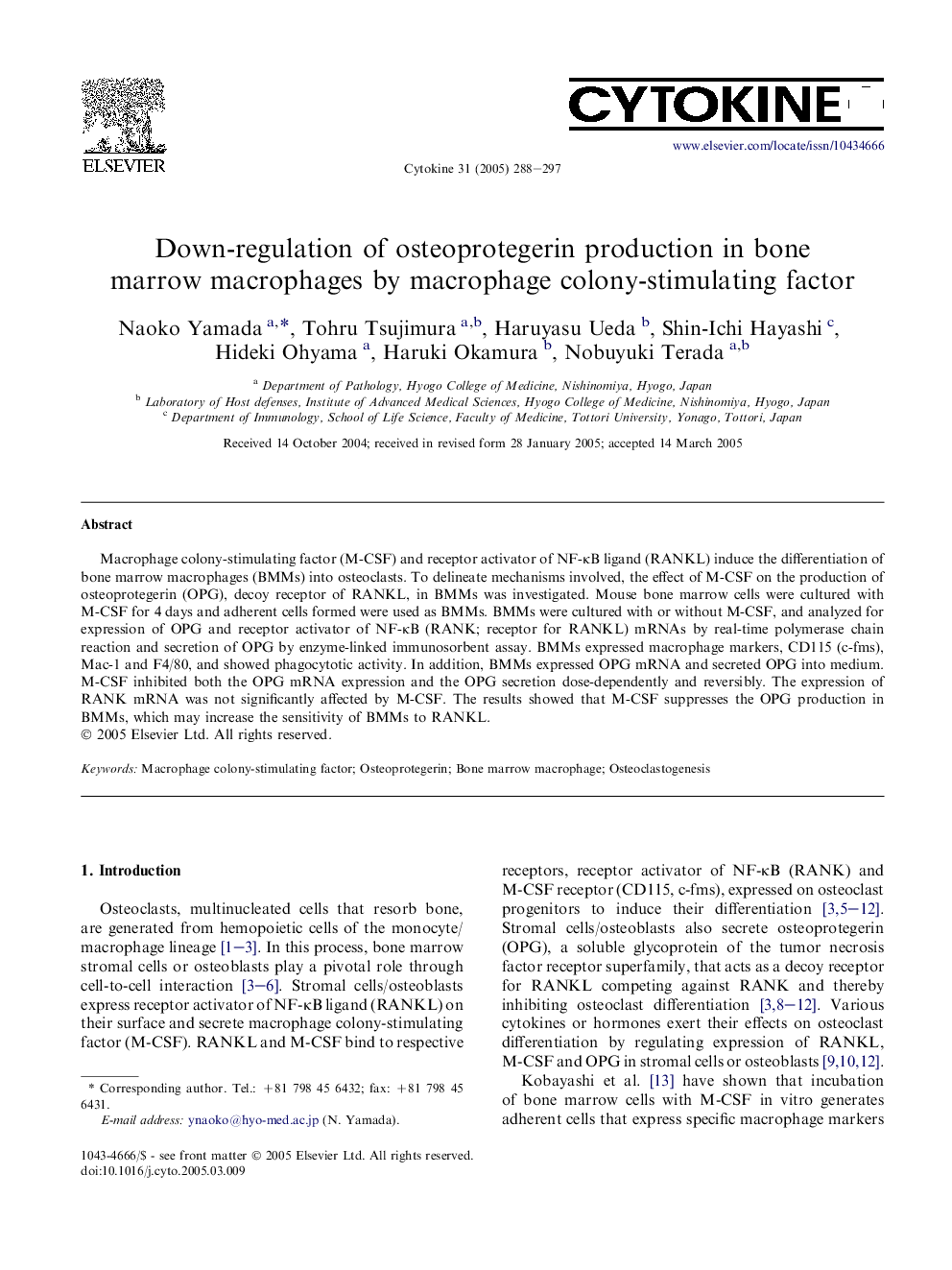| Article ID | Journal | Published Year | Pages | File Type |
|---|---|---|---|---|
| 9110990 | Cytokine | 2005 | 10 Pages |
Abstract
Macrophage colony-stimulating factor (M-CSF) and receptor activator of NF-κB ligand (RANKL) induce the differentiation of bone marrow macrophages (BMMs) into osteoclasts. To delineate mechanisms involved, the effect of M-CSF on the production of osteoprotegerin (OPG), decoy receptor of RANKL, in BMMs was investigated. Mouse bone marrow cells were cultured with M-CSF for 4 days and adherent cells formed were used as BMMs. BMMs were cultured with or without M-CSF, and analyzed for expression of OPG and receptor activator of NF-κB (RANK; receptor for RANKL) mRNAs by real-time polymerase chain reaction and secretion of OPG by enzyme-linked immunosorbent assay. BMMs expressed macrophage markers, CD115 (c-fms), Mac-1 and F4/80, and showed phagocytotic activity. In addition, BMMs expressed OPG mRNA and secreted OPG into medium. M-CSF inhibited both the OPG mRNA expression and the OPG secretion dose-dependently and reversibly. The expression of RANK mRNA was not significantly affected by M-CSF. The results showed that M-CSF suppresses the OPG production in BMMs, which may increase the sensitivity of BMMs to RANKL.
Keywords
Related Topics
Life Sciences
Biochemistry, Genetics and Molecular Biology
Endocrinology
Authors
Naoko Yamada, Tohru Tsujimura, Haruyasu Ueda, Shin-Ichi Hayashi, Hideki Ohyama, Haruki Okamura, Nobuyuki Terada,
